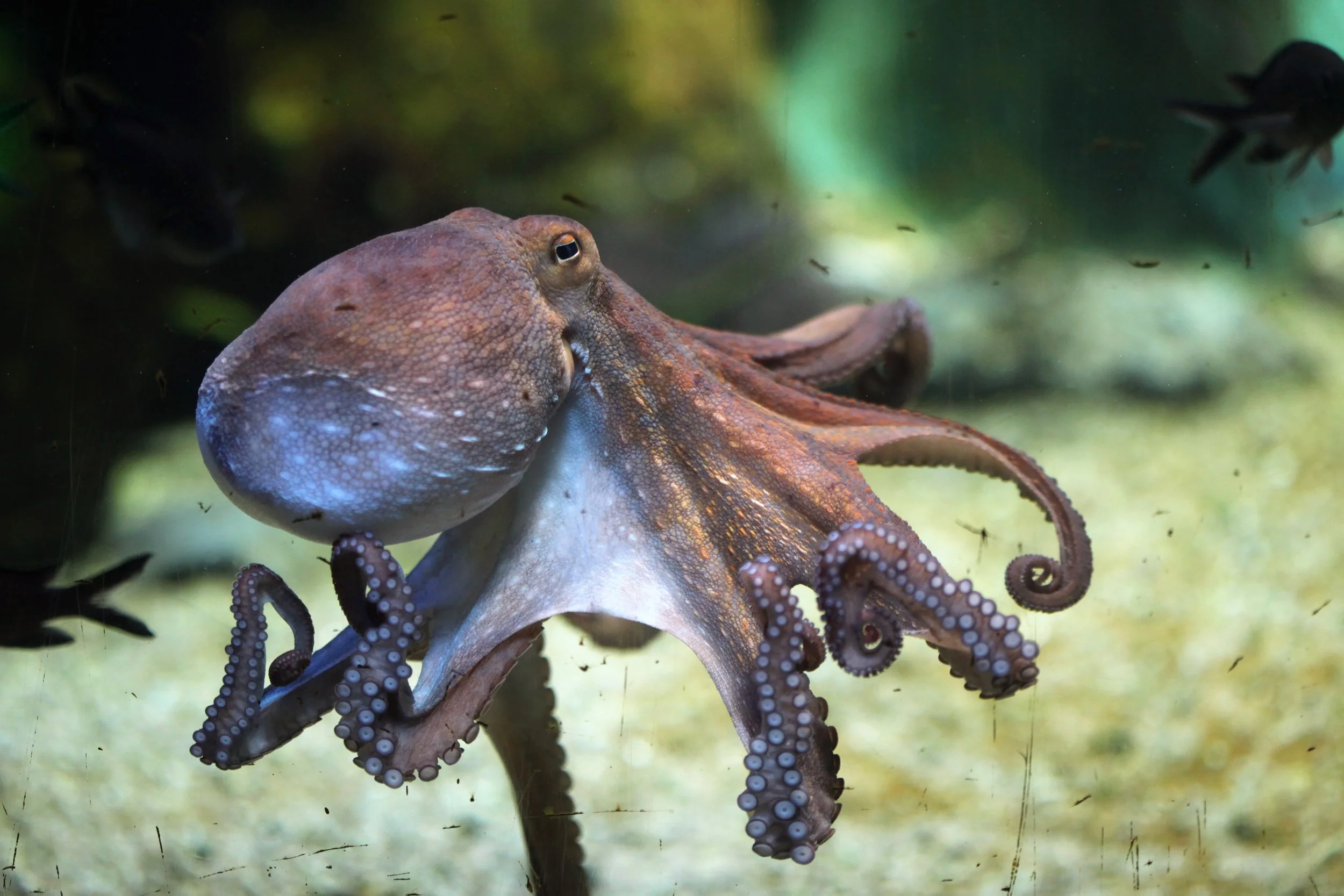Octopus Farming: Alarms Raised by Aquatic Life Institute are Echoed by Canary Islands Government
Aquatic Life Institute has both led and contributed to a global campaign to ban octopus farming since 2022. We are adamantly opposed to the establishment of this industry as there are a myriad of animal welfare, environmental, public health and community wellbeing concerns regarding exploiting octopuses in intensive settings.
As the threat of the octopus farm loomed in the Canary Islands with little opposition, the first action we carried out for our campaign in May of 2022 was to send a letter signed by over 120 members of the Aquatic Animal Alliance to the local Environmental agency that was evaluating the viability of the project. In this letter, we solely focus on the concerns related to potential harmful environmental impacts that the farm could pose to the ecosystem and the community of Gran Canaria.
Since then, we have seen a surge of opposition all around the world against this industry, and our voices are being heard by stakeholders. AVAAZ commissioned ALI to write a report on the pathogens and environmental pollution that will be generated by the farm, in support of their octopus farming ban petition which has now garnered nearly 1 million signatures.
Late last year, we received news from Spain that Nueva Pescanova had not been granted the license to start operating the farm, and they had been requested to follow a more comprehensive environmental permitting process. This procedure is only asked of companies who pose a significant risk of negatively impacting the environment.
Last week, Aquatic Animal Alliance members Compassion in World Farming, Anima Naturalis and Eurogroup for Animals, revealed the report of the meeting of the committee of environmental evaluation that assessed the octopus farm project proposed by Nueva Pescanova and determined that they needed to go through a more comprehensive environmental impact evaluation.
Many of the major concerns of the different agencies evaluating the project were raised by Aquatic Life’s Institute letter sent in 2022. Some of those aspects highlighted by the government officials include:
How the feed is produced and obtained, since octopus are carnivorous animals and feeding them requires putting further pressure on overfished wild populations
Carbon emissions created by the farm’s operations and the consequent air quality deterioration
Lack of clarity on the waste management system
Lack of clarity on the proposed microfiltration system, as they plan to dump the used water from the farm back into the ocean
Use of chemicals not specified by the company (types, amounts, whether they are dumped in the ocean)
Water quality concerns
Escapes of the octopuses from the farm and the consequences this could have on local marine flora and fauna
Another aspect which was highlighted by the department of Public Health is that the territorial ordinance plan of the island states that aquaculture operations are prohibited within 1000 meters of the port, due to concerns around water quality. The plan to establish the farm site is currently within the port, and to obtain water from the ocean for operations.
The more comprehensive environmental study requested by the authorities must include:
A study on the impact of cultural patrimony
An emissions report
Contingency plans for electrical shortages
More detailed information on the construction plans and the noise it will produce
A comprehensive biological characterization of the benthic ecosystem.
Analysis of the water column quality (To allow follow up afterwards and evaluate any changes). The water quality needs to be apt for human consumption.
Describe the microfiltration system proposed by the company for waste waters
List of chemical substances used in the farm, and clarification if they will be present in the water disposed in the ocean
What type of species will be used to produce the feed (specify origin, amounts, type of capture)
Analysis of the impact of potential odors, lighting and noise
A plan of environmental vigilance before, during and after construction, and during operations
Even though we are encouraged by this progress, we will continue to highlight to the authorities that there is no possible way for octopus farms to be sustainable or ensure high animal welfare conditions for the octopus.
We will continue to ask for a global ban on this potentially catastrophic industry, and advocate for octopus protection worldwide. Please visit our site to learn how you can support our calls to action.


